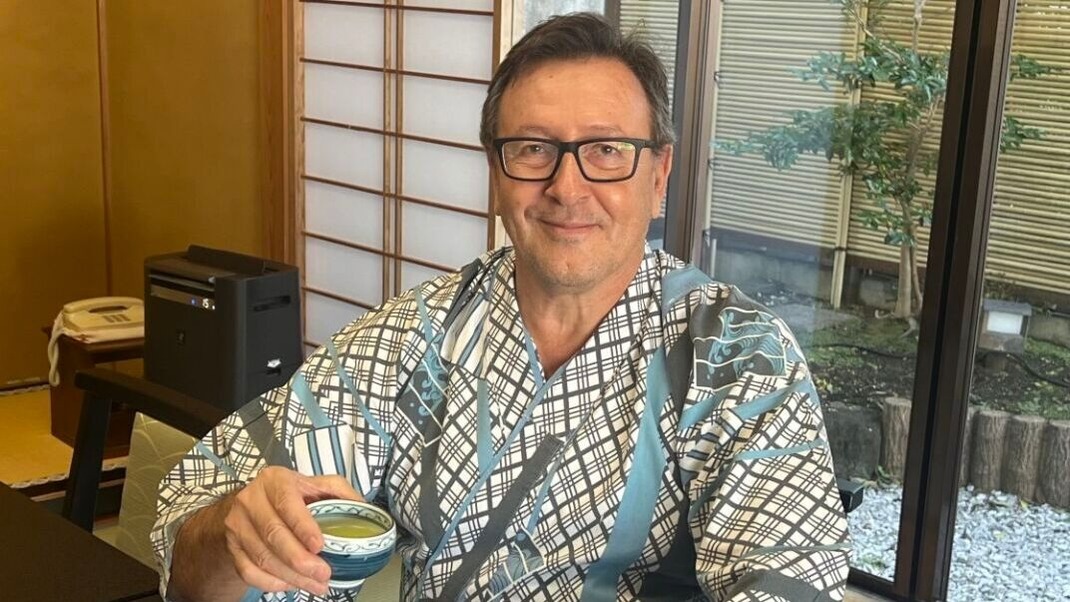
22 January, 2025
Marine Scientist Carlos M. Duarte, a Distinguished Professor of Marine Science at King Abdullah University of Science and Technology (KAUST) and Executive Director of the Coral Research & Development Accelerator Platform (CORDAP), has been honored with the 2025 Japan Prize in the field of Biological Production, Ecology/Environment. This prestigious award recognizes his groundbreaking contributions to marine science, particularly his pioneering research on Blue Carbon, which has redefined how we view and manage marine ecosystems in the fight against climate change. The honor marks a significant milestone in his remarkable career dedicated to understanding and preserving the world’s oceans.
From its establishment in 1985, the Japan Prize has become one of the most esteemed international recognitions in science and technology. Awarded annually by the Japan Prize Foundation, it honors individuals whose achievements have advanced the frontiers of knowledge and contributed to the peace and prosperity of humanity. Professor Duarte’s selection for the 2025 prize highlights the critical importance of marine science in addressing global challenges such as climate change and biodiversity loss.
A cornerstone of Professor Duarte’s scientific legacy is the concept of Blue Carbon, a revolutionary framework emphasizing the role of coastal and marine ecosystems in sequestering carbon dioxide from the atmosphere. Through rigorous research, Professor Duarte demonstrated that habitats like mangroves, seagrasses, macroalgae, and salt marshes act as vital carbon sinks, storing large quantities of carbon and mitigating the impacts of climate change. His work has been pivotal in showing that protecting and restoring these ecosystems is critical to preserving biodiversity and offers a nature-based solution to reducing greenhouse gas concentrations.
Collaborating with global organizations, including various UN agencies, and as a 2018 member of the UN High-Level Panel for a Sustainable Ocean Economy Expert Group, Professor Duarte’s Blue Carbon research has directly influenced international climate policies and conservation strategies. He has championed initiatives that integrate Blue Carbon ecosystems into climate adaptation and mitigation frameworks, catalyzing efforts to protect these habitats at a global scale.
Professor Duarte’s vision extends beyond Blue Carbon to encompass the broader concept of natural capital, the world’s natural resources, and ecosystems that provide invaluable services to humanity. His research evaluates the role of healthy marine ecosystems as economic and ecological assets. By quantifying the contributions of marine habitats to climate regulation, fisheries, and coastal protection, Professor Duarte has advocated for integrating these values into sustainable development strategies. This holistic approach to ocean conservation emphasizes the interconnectedness of environmental health, human well-being, and economic prosperity.
Professor Duarte began his academic journey with a bachelor’s degree in biology from the Autonomous University of Madrid, followed by a Ph.D. in limnology from McGill University in Montreal, Canada. Over the years, he has held prestigious roles at leading institutions, including numerous influential roles throughout his career. He served as a Research Professor at the Spanish National Research Council (CSIC) and as Director of the Oceans Institute at The University of Western Australia. Currently, he is a Distinguished Professor of Marine Science at KAUST and holds the Tarek Ahmed Juffali Chair in Marine Ecology (TAJRC), where he led the Red Sea Decade Expidation 2022 and many other groundbreaking research. In addition, he is the Executive Director of CORDAP and serves as Chief Scientist for Oceans2050, OceanUS, and E1Series. He has also held honorary appointments at Aarhus University in Denmark, the Arctic Research Center, and The University of Western Australia.
Professor Duarte’s scientific leadership extends beyond research to global collaboration and exploration. He led the Malaspina 2010 Expedition, an ambitious initiative that brought together over 700 scientists from 38 institutions across 18 countries. This global voyage circumnavigated the oceans to study the impacts of climate change and explore deep-sea biodiversity. His ability to unite multidisciplinary teams exemplifies his commitment to advancing marine science on a global scale. Professor Duarte contributes to shaping strategies that balance economic growth with ocean conservation. His leadership roles, including serving as President of the American Society of Limnology and Oceanography, have solidified his reputation as a visionary in the field.

The Tarek Ahmed Juffali Research Chair (TAJRC) members join KAUST and the global scientific community in celebrating Professor Duarte’s remarkable achievements. His work exemplifies the transformative power of science to address humanity’s greatest challenges, offering innovative solutions that benefit both the environment and society. Professor Duarte’s dedication to understanding and protecting marine ecosystems continues to inspire researchers and policymakers worldwide.
For more information: https://www.japanprize.jp/en/index.html
To watch the full announcement, please visit https://www.youtube.com/live/mbCjqXznrC4?si=L6CDKF1iTXAQG_24
Selected Publications:
Duarte, C.M., Middleburg, J.J., Caraco, N. (2005)
Major role of marine vegetation on the ocean carbon cycle.
Biogeosciences, 2: 1–8.
Nellemann, C., Corcoran, E., Duarte, C.M., Valdés, L., De Young, C., Fonseca, L., Grimsditch, G. (eds) (2009)
Blue Carbon: the role of healthy oceans in binding carbon: a rapid response assessment. UNEP.
ISBN: 978-82-7701-060-1.
Duarte, C.M., Losada, I.J., Hendriks, I.E., Mazarrasa, I., Marbà, N. (2013)
The role of coastal plant communities for climate change mitigation and adaptation.
Nature Climate Change, 3: 961–968.